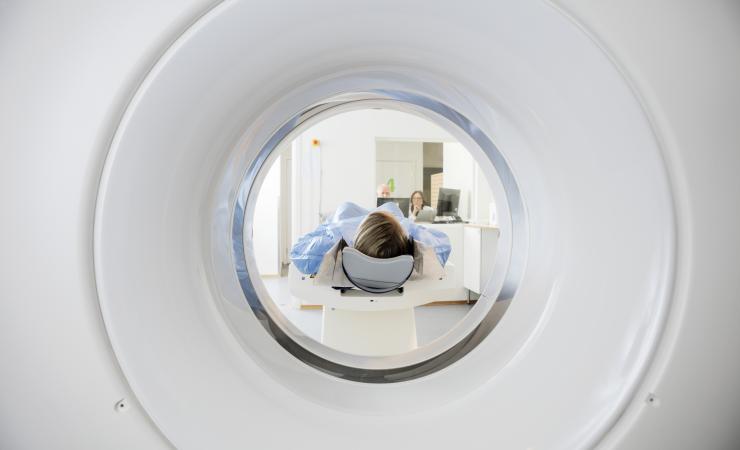Recent years have seen an explosion in the generation of health data from sources as diverse as digital technologies, patient-reported outcome measures, clinical trials, and routine clinical care. This data has the potential to help advance both research and patient care. However, accessing, integrating and analysing it is extremely challenging.
Enter IDERHA, one of the first Innovative Health Initiative projects to get up and running. The aim of IDERHA is to set up an EU-wide health data platform that will facilitate the access to and analysis of diverse types of health data. The platform will link up multiple public and private data sources and put in place interoperable tools and services that will make it possible for key groups to use the data.
“The application of artificial intelligence (AI) methods has the potential to transform how healthcare is delivered to patients and also accelerate the search for new treatments,” said project coordinator Philip Gribbon of the Fraunhofer Institute for Translational Medicine and Pharmacology ITMP. “Within IDERHA, we will connect and integrate health data so that, in the future, patients, clinicians and researchers can access robust AI-based platforms for detection, diagnosis, prognosis and management of deadly diseases such as lung cancer.”
The IDERHA team will use lung cancer as a use case to focus their efforts when designing the platform. Lung cancer is responsible for some 400 000 deaths in Europe every year, around 20 % of all cancer deaths. The 5-year survival rate for lung cancer stands at just 13 %. One reason for this is that over half of all lung cancer patients are only diagnosed when the disease is already at an advanced stage.
One of IDERHA’s tasks will be to use existing data to establish AI-enabled models to identify people who may be at high risk of developing lung cancer. This would allow clinicians to further assess these people’s risk via low dose CT (computed tomography) scans. The assessment of these scans will also be supported with an AI-enabled lung cancer risk prediction model.
Turning to people who have been diagnosed with lung cancer, IDERHA will use remote technologies such as wearables and digital applications to monitor their condition. Remote technologies capture far more detailed information, in real time, on a patient’s condition, as they go about their daily lives. This will make it easier for patients and their doctors to monitor things such as how well a treatment is working, or if complications emerge. This will allow for quicker decisions on any changes to the patient’s care pathway that may be needed.
To enable patients and health care providers to benefit from novel health solutions, the consortium will develop consensus recommendations for fully compliant health data access as well as for the acceptability of real world health data for regulatory and reimbursement decision-making. The recommendations will be developed in collaboration with key stakeholders such as patients, patient organisations and health authorities
“IDERHA's cross-disciplinary team of informaticians, scientists and clinicians will connect and analyse data using AI-based tools, and build a clear picture of benefits and also any drawbacks,” explained Dr Gribbon. “In this way, we will help build confidence across all stakeholders, especially patients and regulatory organisations on how best to implement AI analyses in a productive manner whilst safeguarding the rights of citizens.”
The IDERHA platform will be fully compliant with both current and forthcoming legislation relating to health data, including the European Health Data Space (EHDS). It will empower patients, allowing them to decide for themselves who can access their data. Researchers will benefit from long-term access to health data, making it possible for them to generate new insights into disease progression. Although IDERHA is focusing on lung cancer, ultimately the plan is to develop a platform that will be useful for other disease areas too.
